 W
WThe United Bible Societies reported that the Bible, in whole or part, has been translated in more than 3,324 languages, including complete Old or New Testaments in 2,189 languages, and the complete text of the Bible in 674 languages, by the end of December 2017.
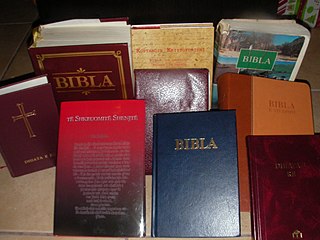 W
WThe history of Bible translations into Albanian can be divided into early and modern translations.
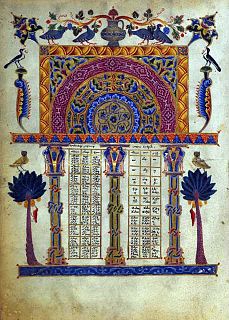 W
WThe Armenian Bible is due to Saint Mesrob's early-5th-century translation. The first monument of Armenian literature is the version of the Holy Scriptures. Isaac, says Moses of Chorene, made a translation of the Bible from the Syriac text about 411. This work must have been considered imperfect, for soon afterwards John of Egheghiatz and Joseph of Baghin were sent to Edessa to translate the Scriptures. They journeyed as far as Constantinople, and brought back with them authentic copies of the Greek text. With the help of other copies obtained from Alexandria the Bible was translated again from the Greek according to the text of the Septuagint and Origen's Hexapla. This version, now in use in the Armenian Church, was completed around the year 434.
 W
WThe Athabaskan language family is divided into the Northern Athabaskan, Pacific Coast Athabaskan and Southern Athabaskan groups. The full Bible has been translated into two Athabaskan languages, and the complete New Testament in five more. Another five have portions of the Bible translated into them. There are no Pacific Coast Athabaskan languages with portions of the Bible translated into them.
 W
WJoanes Leizarraga, a Catholic priest who joined the Reformation, translated the New Testament into Basque (1571).
 W
WThe first translation into Belarusian was by Francysk Skaryna. He printed his first book titled The Psalter, in the Old Belarusian recension of Church Slavonic on August 6, 1517 in Prague. He continued his printing work in Vilnius. The culmination of his life's work was a printing of the Bible in the Old Belarusian recension of Church Slavonic. From 1517 to 1519 he printed 23 books of the Bible. Belarusian bible was the first translation in an Eastern Slavic language and one of the first among European languages.
 W
WNathaniel B. Halhead of the East India Company published a Bengali grammar for British officials in 1776. William Carey of Serampore translated the Bible into the Bengali language and published it in 1793 and 1801. The high language Bengali translation in use in Bangladesh is derived from Carey's version, while "common language" versions are newer translations. Fr. Christian Mignon, a Belgian Jesuit, finished a revised version of the Bible in Bengali, named Mangalbarta which has copious footnotes. Missionaries have also translated the Bible into "Musalmani Bangla", as well as the Chittagonian and Sylheti dialects.
 W
WThe Bible translations into the languages of Taiwan are into Taiwanese, Hakka, Amis, and other languages of Taiwan.
 W
WThe royal Tetraevangelia of Ivan Alexander is an illuminated manuscript Gospel Book in middle Bulgarian, prepared and illustrated in 1355–1356 for Tsar Ivan Alexander of the Second Bulgarian Empire. The manuscript is regarded as one of the most important manuscripts of medieval Bulgarian culture. The manuscript, now in the British Library, contains the text of the Four Gospels illustrated with 366 miniatures and consists of 286 parchment folios, 33 by 24.3 cm in size.
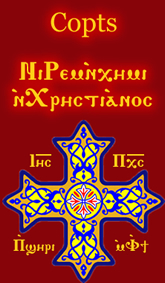 W
WThere have been many Coptic versions of the Bible, including some of the earliest translations into any language. Several different versions were made in the ancient world, with different editions of the Old and New Testament in five of the dialects of Coptic: Bohairic (northern), Fayyumic, Sahidic (southern), Akhmimic and Mesokemic (middle). Biblical books were translated from the Alexandrian Greek version.
 W
WTranslations of parts of the Bible into Cornish have existed since the 17th century. The early works involved the translation of individual passages, chapters or books of the Bible. The first full translation of the Bible into the Cornish language was published in 2011. The New Testament and Psalms in another translation went on-line in 2014.
 W
WThe Czech literature of the Middle Ages is very rich in translations of Biblical books, made from the Vulgate. During the 14th century all parts of the Bible seem to have been translated at different times and by different hands. The oldest translations are those of the Psalter. The New Testament must also have existed at that time, for according to a statement of Wyclif, Anne, daughter of Charles IV, received in 1381 upon her marrying Richard II of England a Bohemian New Testament.
 W
WBible translations into Eskimo-Aleut languages include:
 W
WThe first northern Estonian language version of the New Testament was published in 1715, with the whole Bible of Anton thor Helle appearing in Estonian in 1739.
 W
WThe official translation used by the state church, the Evangelical Lutheran Church of Finland, is approved by its Synod. There have been three official translations: Biblia: Se on: Coco Pyhä Ramattu Suomexi (1642), Pyhä Raamattu (1933/1938), and the current one Uusi kirkkoraamattu (1992/2007). The term kirkkoraamattu means that the edition has to be suited for service of worship and other needs of the church.
 W
WThe Bible was first translated into the Georgian language as early as the 5th century. The Vani Gospels is an illuminated manuscript of the gospels in the Georgian Nuskhuri script dating from the end of the 12th–early 13th centuries. Recently a new translation was completed by the Institute for Bible Translation.
 W
WBible translations into Hebrew primarily refers to translations of the New Testament of the Christian Bible into the Hebrew language, from the original Koine Greek or an intermediate translation. There is less need to translate the Jewish Tanakh from the Original Biblical Hebrew, because it is closely intelligible to Modern Hebrew speakers. There are more translations of the small number of Tanakhas passages preserved in the more distantly related biblical Aramaic language. There are also Hebrew translations of Biblical apocrypha.
 W
WThe modern Hindi language and Urdu language are mutually intelligible in colloquial form, but use different scripts when written, and have mutually unintelligible literary forms. The history of Bible translations into Hindi and Urdu is closely linked, with the early translators of "Hindustani" simply producing the same version with different scripts: Devanagari and Nastaliq, as well as Roman.
 W
WThe first Bible translations into Hungarian date from the 15-16th centuries, as do the first Hussite Bible and the Vizsoly Bible.
 W
WThe history of Bible translations into Icelandic began with the country's conversion to Christianity around 1000 CE but efforts accelerated with the Icelandic Reformation in the mid-16th century. Since then, 11 complete translations of the Bible have been completed into Icelandic. Currently, the Icelandic Bible Society oversees translation and production of Icelandic-language Bibles with the most recent full translation completed in 2007.
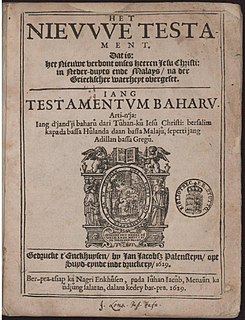 W
WBible translations into the languages of Indonesia and Malaysia have a lot of common history up until the modern era. Apart from the shared Malay language which historically was the lingua franca of the Malay archipelago and forms the basis for the national languages of Indonesia and Malaysia today, portions of the Bible have been translated into a variety of indigenous languages in the region.
 W
WThe first translation of the Bible (Alkitab) in the Indonesian language was Albert Corneliszoon Ruyl's translation of the book of Matthew (1629). Between then and now there have been at least 22 other translations, excluding translations to local languages of Indonesia. The most widespread translation used by Indonesian right now is Terjemahan Baru (1985), or "New Translation" published by LAI.
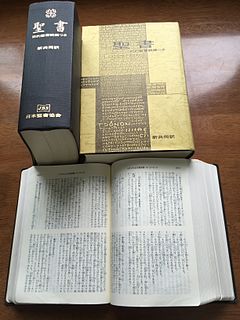 W
WThere are two main translations of the Bible into Japanese widely in use today—the New Interconfessional Version and the New Japanese Bible. New Interconfessional Translation Version is published by the Japan Bible Society and the New Japanese Bible is published by Inochinokotoba-sha(いのちのことば社). There are with different translation goals. The New Japanese Version aims to be used as a literal translation using modern Japanese while the New Interconfessional Version aims to be ecumenically used by all Christian denominations and must therefore conform to various theologies. Protestant Evangelicals most often use the New Japanese Version, but the New Interconfessional Version is the most widely distributed and the one used by the Catholic Church, the United Church of Christ, Lutheran Church factions and many Anglicans in Japan.
 W
WThe Bible translations into Latin are the versions used in the Western part of the former Roman Empire until the Reformation and still used, along with translations from Latin into the vernacular, in the Roman Catholic Church.
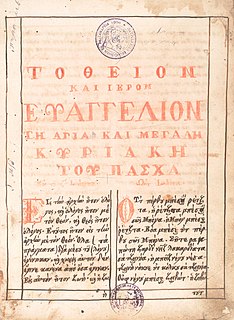 W
WThe history of Bible translations into Macedonian is connected in its early years with the history of Bible translations into Bulgarian. After the codification of Macedonian in 1945, in 1952 a liturgical edition of the four Gospels was printed as the first official translation into standard Macedonian.
 W
WBible translations into Malay include translations of the whole or parts of the Bible into any of the levels and varieties of the Malay language. Publication of early or partial translations began as early as the seventeenth century although there is evidence that the Jesuit missionary, Francis Xavier, translated religious texts that included Bible verses into Malay as early as the sixteenth century.
 W
WThe translation of the Bible into the Manchu language was started in the 18th century, but only the translation of the New Testament has been published.
 W
WSince the first spread of Christianity in Norway, numerous translations of the Bible have been published. Translations have appeared in several of the official languages that Norway has had throughout its history, including editions in Old Norse, Danish, and both current standard forms Nynorsk and Bokmål.
 W
WThe Sankt Florian Psalter or Saint Florian Psalter is a brightly illuminated trilingual manuscript psalter, written between late 14th and early 15th centuries in Latin, Polish and German. The Polish text is the oldest known translation of the Book of Psalms into that language. Its author, first owners, and place of origin are still not certain. It was named after St. Florian Monastery in Sankt Florian, a town in Austria, where it was discovered.
 W
WThe first Romanian Bible translation is the Calvinist Palia de la Orăștie from 1581/1582. The translators were Calvinist pastors from Transylvania. The first complete translation to Romanian was made in 1688. The Old Testament was translated by Moldavian-born Nicolae Milescu in Constantinople. The translator used as his source a Septuagint published in Frankfurt in 1597. The manuscript was afterwards revised in Moldova and later brought to Bucharest, where it was again subject to revision by a team of Wallachian scholars with the help of Şerban Cantacuzino and Constantin Brâncoveanu.
 W
WBible translations into Romansh are about the translations of the Bible into Romansh, which is one of the "four approved languages" of Switzerland.
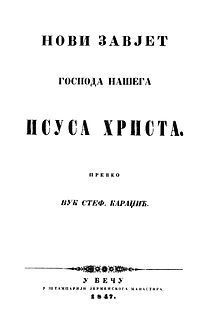 W
WThere are many translations of the Bible into Serbian and Serbo-Croatian language.
 W
WThe first known translations of parts of the Bible into Slovak dates to 15th century, although full translations, as an alternative to Bible translations into Czech, date from the year 1756.
 W
WThe history of Bible translations into the Tamil language commences with the arrival of Bartholomäus Ziegenbalg at Tranquebar in 1706.Johann Philipp Fabricius, a German, revised Ziegenbalg's and others work to produce the standard Tamil version. Seventy years after Fabricius, at the invitation of Peter Percival a Saiva scholar, Arumuka Navalar, produced a "tentative" translation, which is known as the "Navalar version," and was largely rejected by Tamil Protestants.
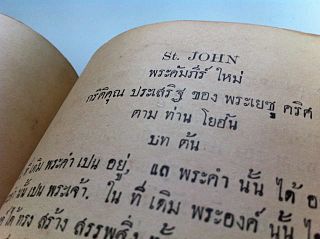 W
WThe entire Bible was published in Thai in 1894 and there are currently several translations of the Bible in the Thai language.
 W
WParts of the Bible have been translated into Welsh since at least the 15th century, but the most widely used translation of the Bible into Welsh for several centuries was the 1588 translation by William Morgan, Y Beibl cyssegr-lan sef Yr Hen Destament, a'r Newydd as revised in 1620. The Beibl Cymraeg Newydd was published in 1988 and revised in 2004. Beibl.net is a translation in colloquial Welsh which was completed in 2013.
 W
WIn the early part of the sixteenth century, there were already attempts to translate the Bible into Yiddish, including Hebrew-Yiddish biblical dictionaries. One of the most authoritative was the Bible that Jekuthiel Blitz translated in 1678.